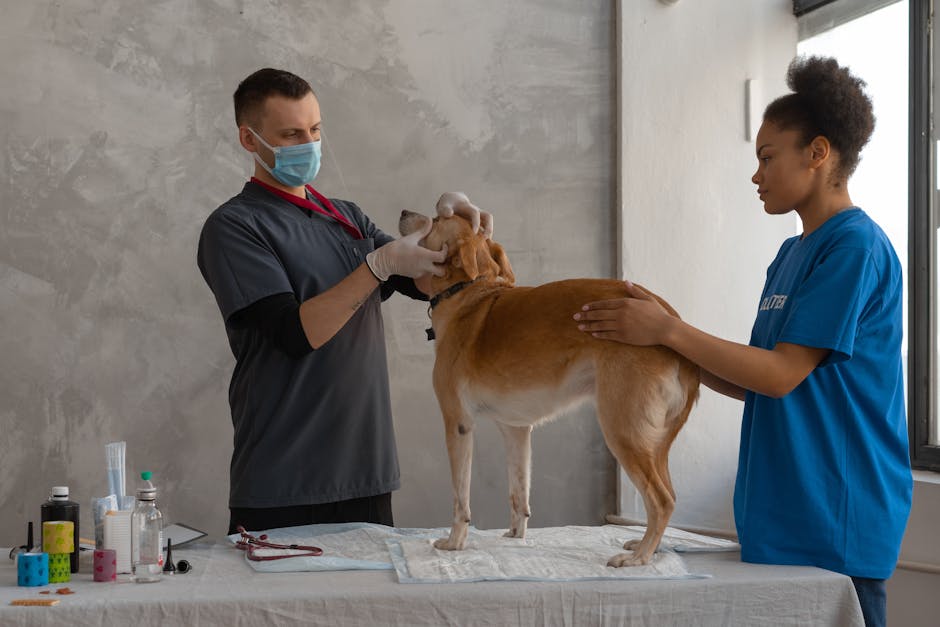Animal companions enrich our lives in countless ways, yet understanding their unique health predispositions is crucial for responsible pet ownership. Different species, breeds, and even individual genetic lines present varying susceptibilities to certain ailments. This exploration delves into the multifaceted considerations surrounding specific health risks for various pet species.
A cornerstone of responsible pet care is recognizing the specific vulnerabilities of each animal type. Cats, dogs, birds, reptiles, and even small mammals each have their own inherent health challenges. This knowledge allows proactive measures to be implemented, potentially preventing or mitigating potential issues.
Canine Companions: A Spectrum of Concerns
Canine companions, with their diverse breeds, showcase a broad range of health risks. Breed-specific predispositions are a significant factor. For example, large breeds like Great Danes and Saint Bernards are prone to hip dysplasia and bloat, while smaller breeds such as Chihuahuas are susceptible to patellar luxation. Furthermore, certain breeds, like German Shepherds, are prone to certain types of cancer.
Beyond breed-specific issues, lifestyle plays a substantial role. Obesity, a pervasive problem amongst canines, contributes to a wide range of health complications, including osteoarthritis, diabetes, and heart disease. Lack of exercise, coupled with a high-calorie diet, exacerbates these risks. Similarly, insufficient preventative care, including vaccinations and regular check-ups, can expose dogs to preventable illnesses like Lyme disease and parvovirus. The environmental factors surrounding a dog, such as exposure to parasites or toxins, also play a considerable role in their overall health.
Feline Friends: Deciphering Felines’ Health Hurdles
Felines, with their independent nature, often mask underlying health issues. Feline leukemia virus (FeLV) and feline immunodeficiency virus (FIV) are significant concerns, often posing devastating consequences for affected cats. Obesity, a substantial issue for indoor felines, can lead to serious problems such as diabetes and arthritis. Dental disease is another prevalent concern, and oral health issues can lead to systemic problems throughout the body. Access to clean water and a balanced diet are pivotal in preventing these issues.
Beyond these common concerns, certain breeds or lineages of cats may have specific predispositions to conditions like hypertrophic cardiomyopathy (HCM) or polycystic kidney disease. Understanding these breed-specific vulnerabilities is crucial for proactive health management. Also, recognizing the typical age-related ailments that cats may encounter is vital for owners, to prevent or mitigate potential problems.
Equine Elegance: The Equine Health Narrative
Equine companions, whether horses or ponies, face a unique array of health challenges. Equine metabolic syndrome is a substantial concern, particularly in horses with a tendency toward weight gain. Certain breeds may have a predisposition to specific types of laminitis, a painful hoof condition. Contagious equine diseases, such as strangles and influenza, can quickly spread through stable environments, underscoring the importance of preventative measures. Joint issues, such as osteoarthritis, are also prevalent in older equines, highlighting the importance of appropriate exercise and weight management throughout their lives. Access to adequate pasture, stable management, and veterinary care are key aspects for maintaining their well-being.
Small Mammals: Navigating the Unique Health Profile
The health challenges for small mammals, encompassing rodents, rabbits, and other small creatures, are diverse. Dental problems are frequent, often linked to specific dietary needs. Dental care is essential for maintaining their overall health. Nutritional deficiencies, due to inappropriate diets, can lead to various issues. Rabbits, in particular, are prone to digestive problems and require specific diets to maintain good health. Identifying potential parasite infestations is crucial for their wellbeing, and prevention through proper hygiene is vital.
Exotic Pets: An Exploration of Unique Health Risks
Exotic pets, including reptiles, amphibians, and birds, present unique health challenges. Nutritional requirements can vary considerably, and deficiencies in essential nutrients can result in numerous problems. Parasites, specific to these environments, require specific treatments. The need for specific temperature and humidity levels, for example, in a reptile’s enclosure, dictates the type of care that must be given. Birds often face respiratory issues, and the environment surrounding them directly affects their health. Appropriate enclosure conditions are vital to maintaining their health.
Proactive Veterinary Care: A Cornerstone for Health Management
Regardless of the species, proactive veterinary care is fundamental to maintaining optimal health. Regular check-ups, vaccinations, and parasite control are essential to prevent a wide range of issues. Diet plays a pivotal role in preventing various problems. Obesity and malnutrition are both detrimental to overall health. Owners should also closely monitor their pet’s behavior and appearance for any signs of illness. Addressing potential issues early is crucial for effective treatment and successful outcomes.
Conclusion: Recognizing Species-Specific Needs
Understanding the specific health risks associated with different pet species is paramount to responsible pet ownership. By recognizing breed predispositions, environmental influences, and age-related challenges, pet owners can proactively address potential issues and ensure their companions live long, healthy lives. Ultimately, a nuanced understanding of the species-specific health needs lays the foundation for providing comprehensive, compassionate, and species-appropriate care for our animal companions.
